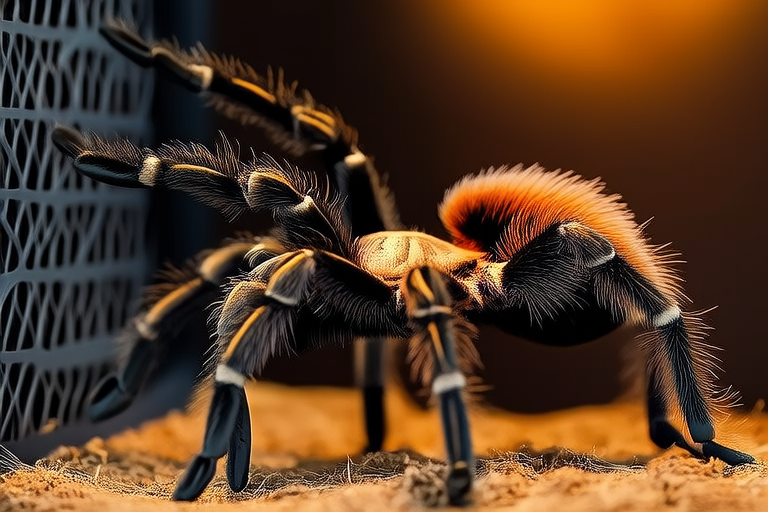Everything You Need to Know Before Getting a Tarantula as a Pet
Welcome to the fascinating world of tarantulas! If you’re considering adding one of these unique creatures to your home, this guide will provide you with all the essential information to help you make an informed decision. From understanding which species make great pets to setting up the perfect habitat and caring for your tarantula’s health, we’ve got you covered.
Choosing the Right Species
With over 1,000 species of tarantulas, it’s crucial to select one that suits your lifestyle and experience level. Here are some popular choices:
- Brown Recluse Tarantula (Aphonopelma chalcodes): Known for its calm demeanor and easy care, this species is ideal for beginners.
- Chilean Rose Hair Tarantula (Grammostola rosea): This species is another beginner-friendly option, known for its docile nature and vibrant coloration.
- Barking Spider (Ceratogyrus attonitans): Named for its defensive behavior, this species is more active and requires a bit more experience to handle.
Housing Requirements
Creating the right environment is vital for your tarantula’s well-being. Start by selecting an appropriate enclosure:
- Size: The tank should be at least three times the leg span of your tarantula in length and width. Depth is less critical but should be around half the length.
- Substrate: Use a substrate that holds moisture well, such as coconut fiber or peat moss. A depth of 3-4 inches is recommended.
- Hiding Places: Provide ample hiding spots like cork bark, half logs, or artificial caves.
Temperature and Humidity Controls:
- Temperature: Maintain a temperature between 75-85°F (24-29°C) during the day, slightly cooler at night.
- Humidity: Aim for 60-80% humidity, depending on the species. Regular misting can help maintain this level.
Diet Specifics
Tarantulas are carnivorous and require a varied diet to thrive:
- Insects: Feed your tarantula crickets, mealworms, or dubia roaches. Dust them with calcium and vitamin supplements before offering.
- Feeding Schedule: Offer food once or twice a week. Juveniles may need more frequent feedings.
- Water: While tarantulas don’t drink water directly, they absorb it from moist substrate.
Handling Tips
While tarantulas are generally docile, they can become stressed if handled improperly:
- Gentle Handling: Use a soft brush or tongs to gently coax your tarantula onto a flat surface.
- Minimize Handling: Limit handling to avoid stress and potential molting issues.
Common Health Issues
Understanding potential health problems can help you keep your tarantula healthy:
- Molting: During molting, tarantulas are vulnerable. Ensure proper humidity and avoid disturbing them.
- Regurgitation: Occurs when a tarantula expels undigested food. It can indicate stress or improper diet.
- Leg Loss: While regrowth is possible, preventing injuries is key. Avoid handling and ensure a safe environment.
Misconceptions About Tarantulas
Let’s address some common myths:
- Aggressiveness: Most tarantulas are not aggressive. They bite only as a last resort.
- Poisonous: Tarantula venom is generally not harmful to humans.
- Longevity: With proper care, tarantulas can live for many years.
Responsibilities of Tarantula Ownership
Owning a tarantula comes with significant responsibilities:
- Commitment: Tarantulas can live for decades. Ensure you’re prepared for long-term care.
- Research: Continuously educate yourself about tarantula care and species-specific needs.
- Safety: Create a secure environment to prevent escapes and ensure safety for both you and your pet.
Resources for Further Learning
To deepen your knowledge, consider these resources:
- Books: “Tarantulas and Other Arachnids” by Philippe de Vosjoli and Roger Klingenberg.
- Websites: The American Tarantula Society offers valuable information and community support.
- Local Herpetological Societies: Join local groups for hands-on learning and networking.
By following this guide, you’ll be well-equipped to provide a happy and healthy life for your tarantula. Remember, with the right care and attention, your tarantula can be a rewarding and fascinating addition to your household. Happy tarantula keeping!
